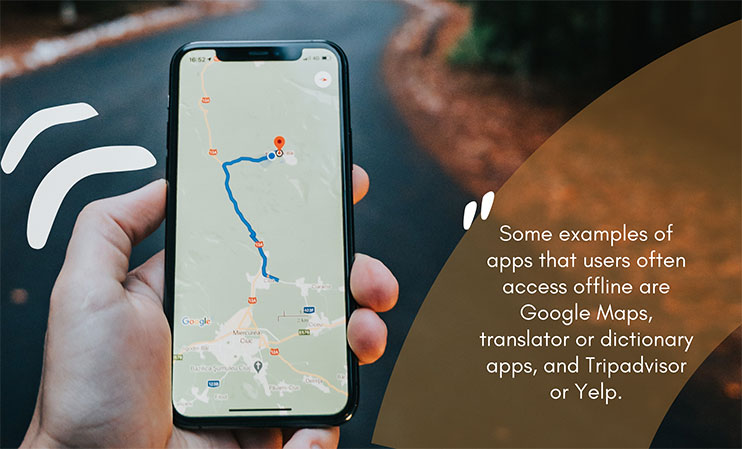App or website first? The answer depends on what your goals are, what your budget is, and what your company or product is designed to achieve.
Apps can certainly be a great business venture. Today’s consumers use apps to shop, track progress, keep notes, navigate, and more. But for some companies, a traditional website is still the way to go.
The best way to decide whether you need an app or website first is to ask yourself the following questions.

Who's your target audience?
According to a recent study, about 58% of millennials make purchases on apps more often than on the web. So if you’re targeting millennials or younger generations, an app is a smart choice.
What's your budget?
If you only have a limited budget, it makes sense to start with a website rather than an app. Apps require a high level of research, design, architecture, and programming, and need to be adjusted for each platform (Android, iOS), whereas websites usually require research and design, but not much programming.
Because of this, apps typically cost more than websites. Of course, it’s tough to know how much your app will cost, since every app requires different services and features. But according to research by Clutch, developing an app costs around $171,000 on average.
Does your product rely on native phone features and/or GPS?
Are you building a product that needs to access a consumer’s location or asks the user to upload a photo? If your product relies on GPS, a camera, a gyroscope, or sensors, then an app is your best bet.
Some good examples of apps that use GPS are Google Maps and Uber. Of course, you can still achieve many of these things with a website, but it will be much harder, and the experience won’t be as seamless for your users.
How many times a day will consumers use your product?
If you anticipate users checking in to your product multiple times a day, an app makes the most logical sense. For example, will consumers use your product to take notes, create and mark off a to-do list, access social media, play games, track something, obtain transportation, or find their way around?
In these kinds of situations, users don’t want to type in a URL, wait for a website to load, and navigate to the right page. They want something they can access immediately from their phone.
Then again, if your product is work or office-related, like a project management tool or scheduling software, it might make more sense to use a website, even though users will likely be accessing it multiple times a day.
Does speed matter?
Modern consumers want instant entertainment, immediate access to information, and real-time updates. Most people aren’t prepared to wait even five minutes for a game, film, or book to load on their device.
In general, mobile apps are faster than websites. This is because mobile apps store user data locally on the device. By contrast, websites download user data from the server. So if you want your consumers to have a seamless, fast-paced experience, choose an app.
Will consumers use your product offline?
If consumers will be using your product at the gym, on their daily commute, while engaging in outdoor activities, or in another location without an internet connection, you probably want an app rather than a website.
Some examples of apps that users often access offline are Google Maps, translator or dictionary apps, and Tripadvisor or Yelp.

How often will you be improving or updating your product?
If you plan to improve or update your content frequently, a website is the best plan. Apps can be tricky to update, since you’ll have to change the front and back-end for each separate platform, and your users will have to download an update.
However, if you’re updating a website, all you have to do is change the copy. This is why most banks, news outlets, and hospitality companies use websites as opposed to apps.
Do you need to run analytics or SEO?
Analytics and search engine optimization (SEO) can help you figure out who’s using your product and how to increase traffic and conversions. Unfortunately, SEO is only possible for websites, not apps. So if you plan on using SEO or analytics to kickstart and grow your company, you probably want a website first.
What's your competitor doing?
If you’re in an industry where everyone has a website rather than an app, you could be the first to offer something unique and unconventional. Think of it as your Unique Selling Proposition (USP).
Having a convenient, progressive app in an industry of traditional web solutions might just set you apart from the competition. Just make sure an app makes logical sense for your company and won’t be a drain on your resources.
App or website?
Finally, remember that many businesses have both apps and websites. While you definitely want to be strategic in choosing which one to develop first, you can always save the other option for later.
In the end, there’s no one answer that’s right for everyone. Whether you need an app or website first all depends on your resources, goals, target customers, and industry.
Need help building an app to kickstart your business? Let’s talk!
By Band of Coders